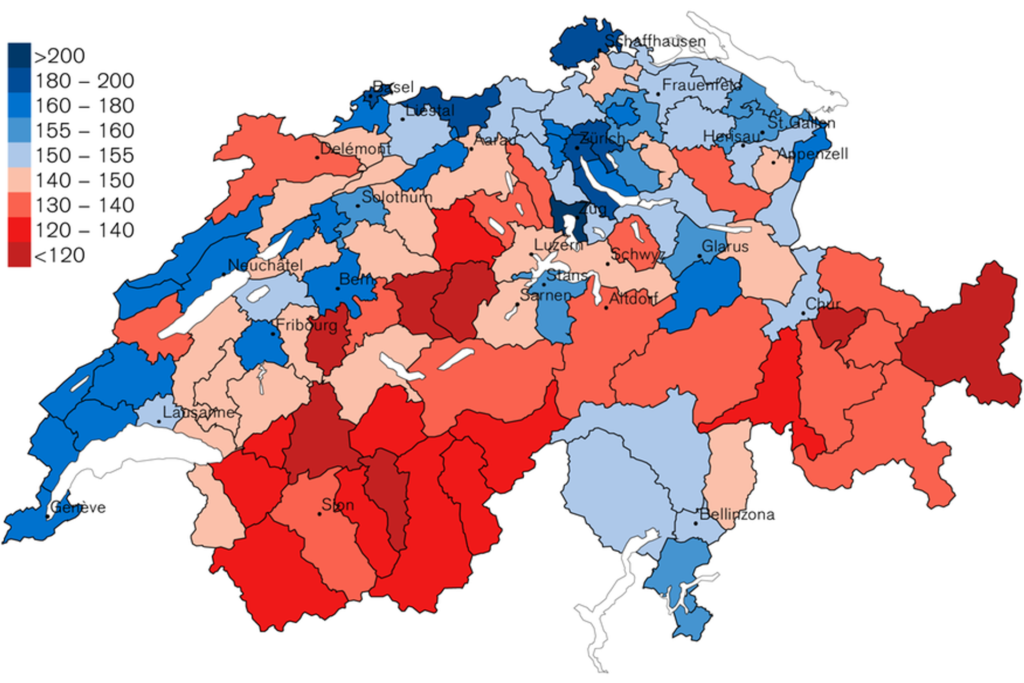IMF: “Very effective pandemic management in Switzerland”
Bern lags economically by 2.9 percent in 2020, but will grow by 3.5 and is prepared for the challenges of pension provision and climate change
According to the International Monetary Fund, Switzerland has so far handled the COVID19 pandemic well and has been able to contain the decline in economic output.
Economic measures should now focus on a strong and sustained recovery. For 2021, the IMF estimates the country’s economic growth at 3.5%.
Long-term challenges include the reform of old-age provision and climate change.
At 2.9%, Switzerland will experience less economic regression in 2020 than other European economies.

Fruit of OK household economies and public sector
According to the IMF, mitigating factors were, in particular, the starting strength of household economies and government, the competitiveness of export industries, the extensive and well-capitalized financial sector, the reduced dependence on high-contact sectors, the well-organized health care system, and targeted containment measures.
The speed with which emergency measures to support incomes and businesses, amounting to more than 10 percent of GDP, were implemented was also instrumental in containing the collapse of the economy.
In view of the continuing uncertainties and the room for manoeuvre offered by fiscal policy, the IMF suggests that demand should continue to be supported until the recovery is secured.
Switzerland and the “fantastic four” of direct democracy
The ethics of competitiveness and the spirit of federalism
Waldstätte and the “forest” cantons at the dawn of Switzerland…

The call is to continue the expansive monetary policy
In view of the still modest inflation prospects, the IMF also recommends the continuation of the expansionary monetary policy.
In the event of large capital inflows into Switzerland and upward pressure on the franc, this could also include interventions on the foreign exchange market.
The IMF is of the opinion that the Swiss banking sector has coped with the pandemic crisis with ample reserves and that the losses incurred to date are limited.
It recommends continuing to monitor both the development of real estate prices as well as the controls and risk buffers of the financial market players and, if necessary, taking timely measures.

Labour market support measures to be maintained
In the opinion of the IMF, the crisis-related labour market support measures are to be maintained until a sustainable recovery of the economy in order to safeguard jobs.
At the same time it points out that a prolonged continuation of these support measures could hinder necessary structural adjustments.
In the long term, the IMF recommends supporting sustainable, digital growth with effective and targeted measures.
For investments which will be necessary, for example in the energy system, in the transport sector and in the renovation of buildings, synergies with current programs must be exploited and a high degree of effectiveness and efficiency of expenditures must be ensured.
Finally, the IMF considers it important to implement comprehensive reforms to secure old-age provision in the long term, particularly in view of the increasing life expectancy.

Correlating life expectancy and retirement age.
In particular, it suggests increasing the retirement age more markedly by correlating it with life expectancy.
From March 17 to April 7, 2021, the IMF delegation conducted the annual assessment of Switzerland by videoconference, which did not take place last year because of the pandemic.
The regular assessment of the economic and financial situation of its member states in the framework of the so-called “Article IV Consultation” is a central element of the IMF’s economic policy surveillance.
The presidency of the Swiss Confederation from 1848 to the present day
Swiss monuments? A “hidden” treasure to be enhanced…
Athenian democracy? Revive between Glarus and Appenzell…







